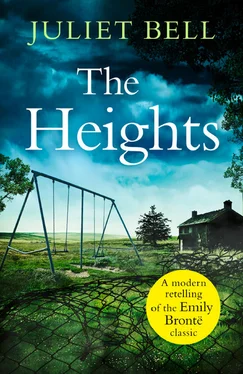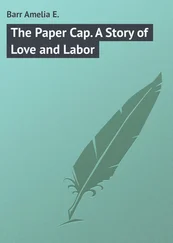Twice during the search, the hillside started to move again, and the searchers held their breath. The blue hills were nothing but mine waste. There was no substance to them. They were as fragile as the lives of the people who lived below them on the estate that clung to the land around the abandoned pithead.
Some of the searchers had worked in that mine. Years ago. The boy they were searching for was one of their own. Almost. He had the right name, even if most of them had never laid eyes on him. They knew his family. His grandfather had worked beside them at the coalface. His uncle too had been one of them. Not the father, mind. But still, they weren’t going to leave the lad buried beneath the landslip.
The family weren’t out there on the slope. Maybe the police had told them to stay behind. But maybe not. Maybe they just hadn’t come.
They’d been looking for a couple of hours when the photographer from the local newspaper arrived. He was told to wait safely beyond the edge of the slip. But he was carrying an array of big and expensive lenses. His camera would go to the places he couldn’t.
The sun was sinking when they found him.
One of the searchers had started yet another small slip, and as the rock slid away, almost like liquid, part of the body was exposed. Carefully they had pulled him free.
The boy hadn’t died easily. Father Joseph, down at St Mary’s, was an old-fashioned priest, but there was no way this lad was going to have an open casket. His body had been pummelled by the sliding rock. The rain had washed most of the blood away, but it was still enough to make one of the men turn away and heave into the scrubby grass.
Surprisingly, the boy’s face was hardly damaged at all. Just a couple of small scrapes and a cut on his temple.
The team leader removed his rucksack and dug inside to find a body bag. Carefully, they lifted the boy and put him inside. There was a sense of relief when the bag was closed.
They carried him down from the hills. The photographer followed. He took a few pictures, but then seemed to lose interest. As soon as they reached the road, the photographer broke away and walked quickly to the warmth of his car.
The searchers carried the body to the ambulance and waited while he was gently placed inside. Then they too dispersed.
The ambulance and the police were the last to leave. The ambulance was destined for the morgue. The police car turned into the estate and parked outside one of the few houses that wasn’t boarded up and deserted.
The young constable got out, and carefully placed his hat on his head and straightened his uniform jacket. That’s what you did when you brought bad news to a family, even one that hadn’t bothered to come and join the search.
He walked up to number 37 Moor Lane and knocked on the door.
Chapter One
Gimmerton. 2008
This was the place he had almost died. Lockwood shivered. In front of him, the chain-link fence was rusted and sagging. The sign hung at an angle, the words NO TRESPASSING all but covered with dirt and grime. Beyond the fence, in the grey light of the overcast afternoon, the buildings looked dark and decayed. Odd bits of iron, stripped from the disused mining machines, lay scattered about the ground and weeds were reclaiming their place in the filthy wasteland of the deserted pit. One building was open to the elements, the remains of its roof lying in a twisted heap between the crumbling brick walls. Not a single pane of glass remained intact. The men of this town had good throwing arms. Stones hadn’t been their only weapons. Nor had windows been their only targets.
Lockwood reached into his pocket and retrieved the piece of metal he’d carried with him every day for more than two decades. The nail was twisted and bent, distorted almost beyond recognition when it was fired through the side of the police van. The newspaper reports at the time had declared it a miracle no one was injured as the nail ricocheted around the interior. Lockwood knew better. A tiny white scar on the left side of his neck showed how close death had come. After everything he’d seen in this job, that was the place his brain took him whenever he let his guard drop. To this day he still woke, sweating at night, hearing the sound of the nail gun beside his ear, and the screech of metal as the nail tore through the body of the van. He could still feel the sharp stab of pain in his flesh.
Lockwood told himself he was no coward. Even then, working with the riot squad, he’d expected danger. The miners were tough, and they were angry. Desperation had seeped into the bones of their community. They were about to lose their jobs. More than that, they were about to lose a way of life that had been with them for generations, the only way of life they knew. They were looking for a fight. He’d been green and keen, and could handle himself. He’d been trained to deal with anger, and there’d been so many moments in his career when something could have gone wrong. There’d been moments when things had gone wrong, but those weren’t the moments he carried with him. Instead he kept hold of this one, as clear and solid in his memory as the nail in his hand. Maybe because that was the first time things had gone wrong. Maybe because they’d never caught anyone. Maybe because of the randomness of the attack. But stay with him it had.
They might not have caught the person who did it, but Lockwood knew who it was. The squad had been out of the vehicle seconds after the incident, breaking up the crowd pounding on the sides of the van. As he struggled in the melee, his neck damp with his own blood, Lockwood had looked towards the nearby houses and seen him. A dark youth, with hatred on his face. He’d been no more than fifteen then and already familiar to the police. He was carrying something in his hands. Lockwood couldn’t see it clearly, but he knew in his heart it was the nail gun, and somewhere in amid the shouting he’d heard the words: ‘That Earnshaw kid.’
By the time Lockwood had fought his way through the crowd the youth was gone. He’d looked at the maze of narrow streets and identical houses in the Heights estate, and known he wouldn’t find him. They had investigated for a few days, but found nothing they could take to court. There were more pressing matters than one split second amid weeks of violence. Nobody was charged, and the incident was forgotten by everyone except Nelson Lockwood.
Darkness was falling as he turned away from the mine and got back into his car. He pulled away from the gates and began to retrace the route he’d followed that morning. The estate was even shabbier than before. Most of the people had left when the mine closed. Rotting boards covered the windows of the deserted pub. Graffiti scarred the walls of the empty shops and houses. Here and there, curtains or a light in a window showed that a house was occupied. For some people, Lockwood guessed, there was simply nowhere else to go.
His goal was the very last row of houses. A couple of the foremen had lived up here. They were the best paid and most trusted of the mine’s employees. They had also been the leaders of the strike. And they always protected their own. The hotheads who had thrown the bricks and started the fights. And a kid with the nail gun he’d stolen from the mine.
Lockwood knew what he would find at the far end of this street, where the town ended and the wild hills began. Since his last visit, someone had turned two small houses into one. It was larger than the houses around it, but not better than them. The aura of neglect and decay was almost palpable. It would take more than a coat of paint or some new guttering to erase the memories that lingered in those walls.
Lockwood didn’t need to see the light in the windows to know that the house was still inhabited. He’d checked that before leaving London on this final trip to Gimmerton. He drove past without stopping. There was plenty of time.
Читать дальше












